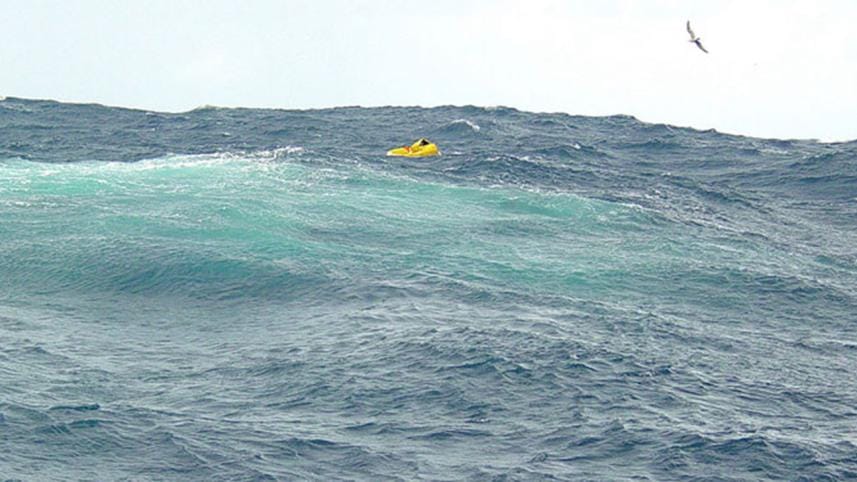Mystery of the Bermuda Triangle solved? Think again

Recently the internet was surging with articles reporting that scientists have unraveled the mystery of the Bermuda Triangle. It is the region in the Atlantic Ocean that's fascinated paranormal enthusiasts for years, because it supposedly is the site of an unusual number of disappearances of ships, aircraft and, of course, people.
According to Discovery.com, some British newspapers reported that scientists had discovered a bunch of pretty big craters on the bottom of the Barents Sea in the Arctic. Researchers from Arctic University of Norway described the craters as being up to 3,280 feet in diameter and 131 feet in depth. Some of the features of the craters, captured with 3-D seismic imaging, suggest they may have resulted from blowouts caused by high-pressure methane gas that migrated up from deep oil deposits and accumulated in shallow rocks from the Triassic period between 206 to 248 million years ago.
That all might sound pretty dry. But in the hands of the tabloids, it became a startling paranormal scoop. The Daily Mail, for example, reported that the discovery "could also possibly explain the loss of ships and aircraft in the controversial area referred to as the Bermuda Triangle."
To bolster this contention, the paper dug up an old quote from a 2014 Siberian Times article about similar craters. That paper interviewed a Russian scientist, Vladimir Potapov, who mentioned the "theory" that such gas blowouts might have heated up the ocean, causing ships to sink in waters infused with methane, and possibly also created atmospheric turbulence that led to aircraft crashes.
That might seem to add a plausibility to the legend of the Bermuda Triangle, which got its name from a 1964 article in Argosy magazine and grew with the publication of a 1974 bestseller and a subsequent movie. But it doesn't. As the National Oceanic and Atmospheric Administration notes: "There is no evidence that mysterious disappearances occur with any greater frequency in the Bermuda Triangle than in any other large, well-traveled area of the ocean."
Beyond that, the Arctic University of Norway — the supposed source of the revelation –itself quickly jumped in to debunk the tabloids' spin on its science, in a news release rather emphatically titled Craters in Barents Sea Not Connected to Bermuda Triangle.
Just to make that point more clear, professor Karin Andreassen, one of the researchers, explained to Discovery News: "What I can say is that we are not making any links to the Bermuda Triangle."
 For all latest news, follow The Daily Star's Google News channel.
For all latest news, follow The Daily Star's Google News channel.
Comments